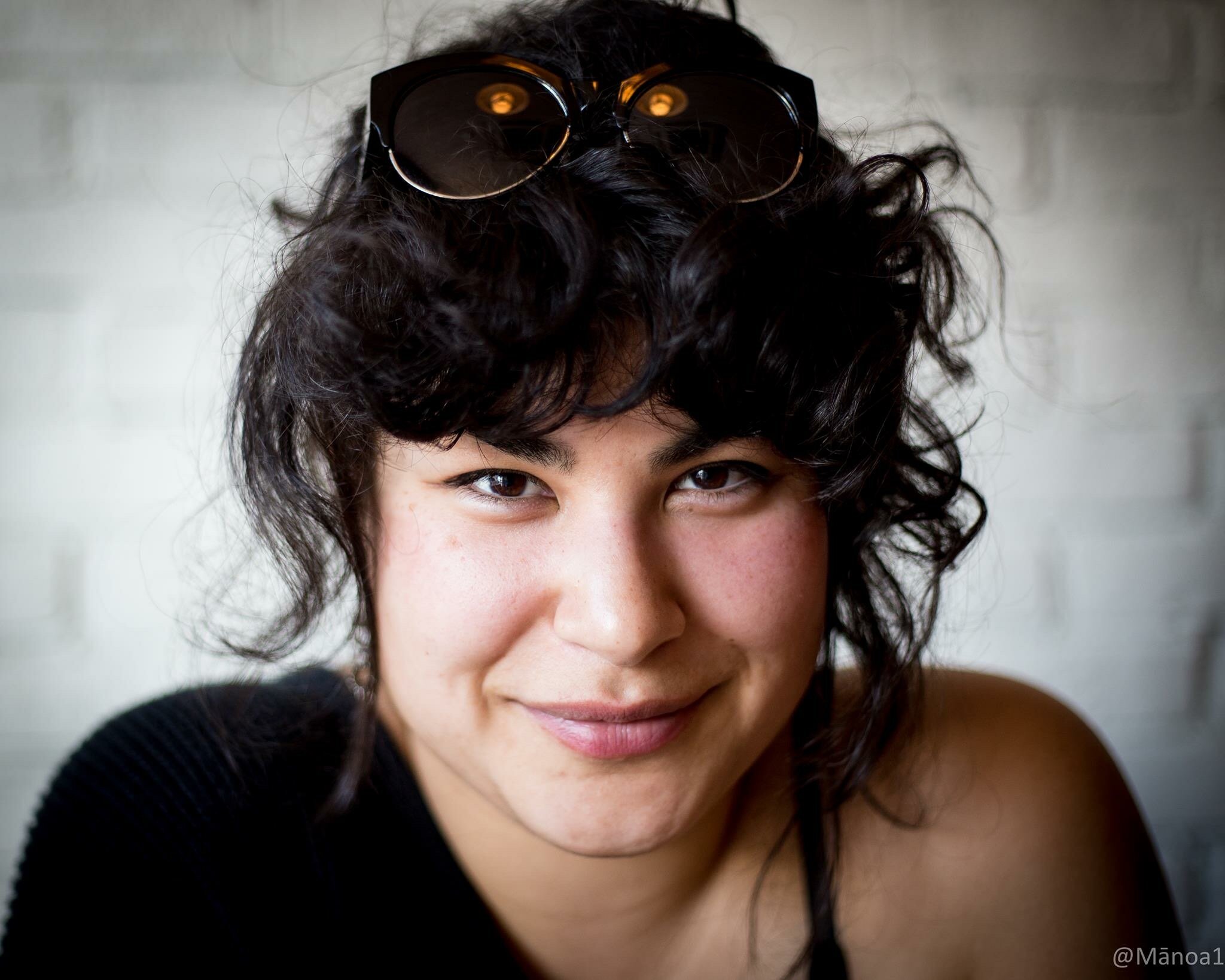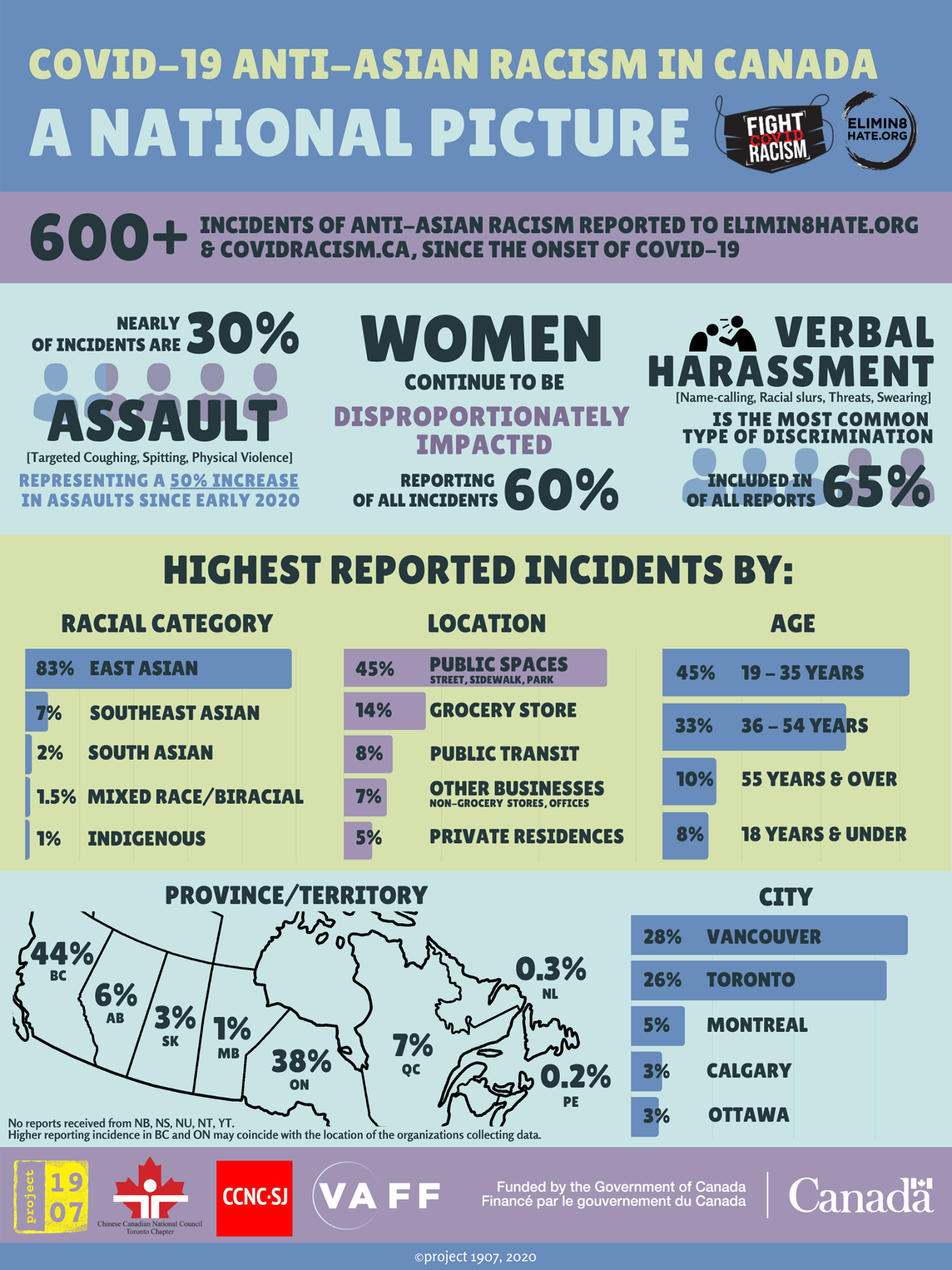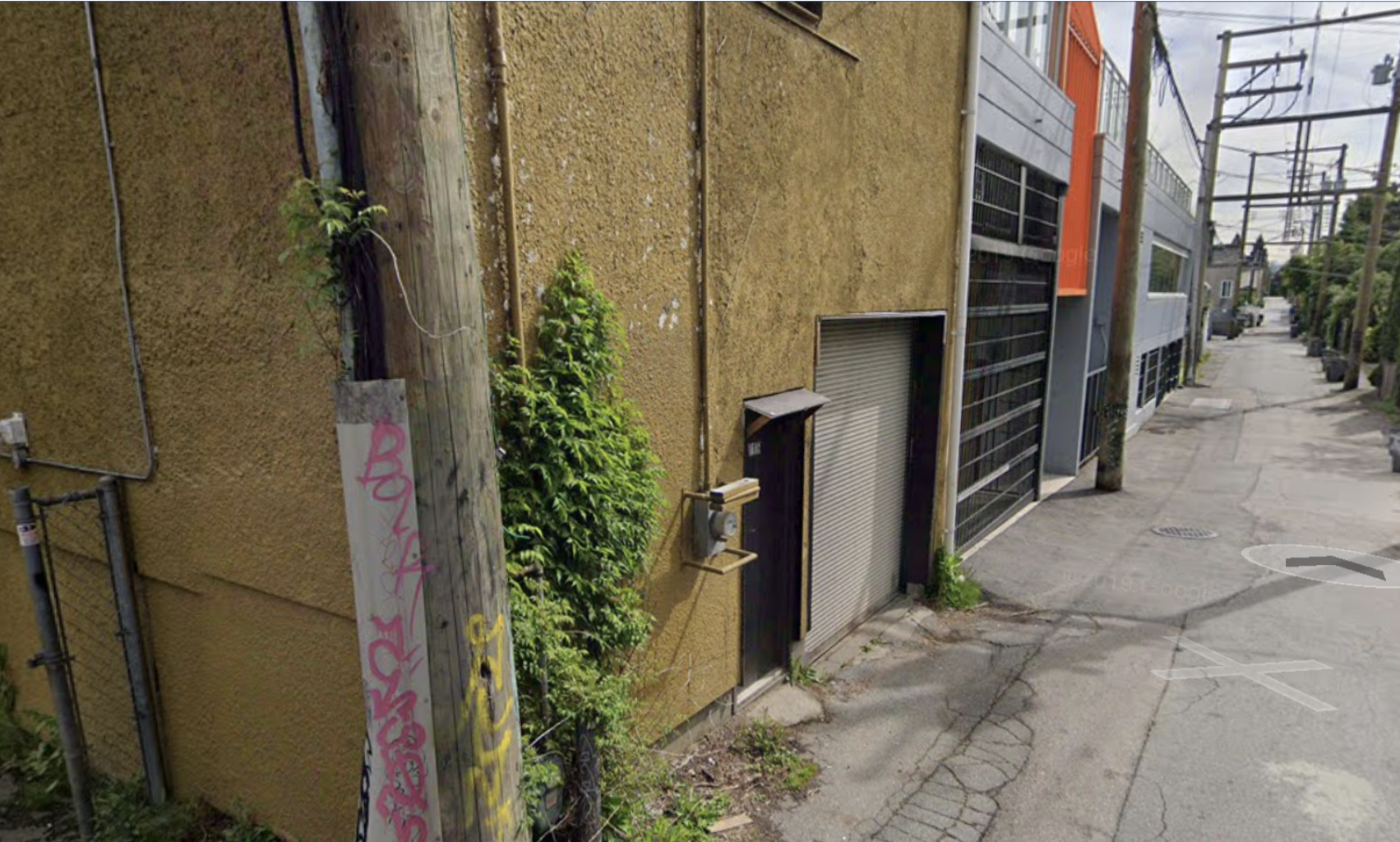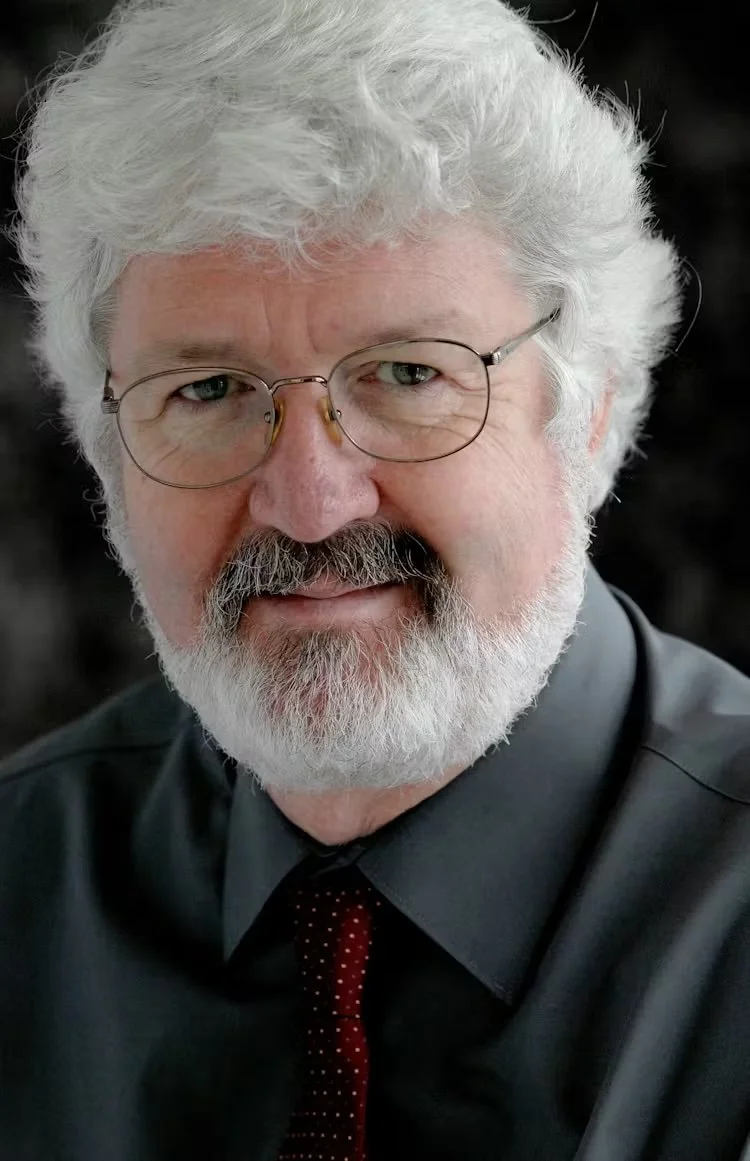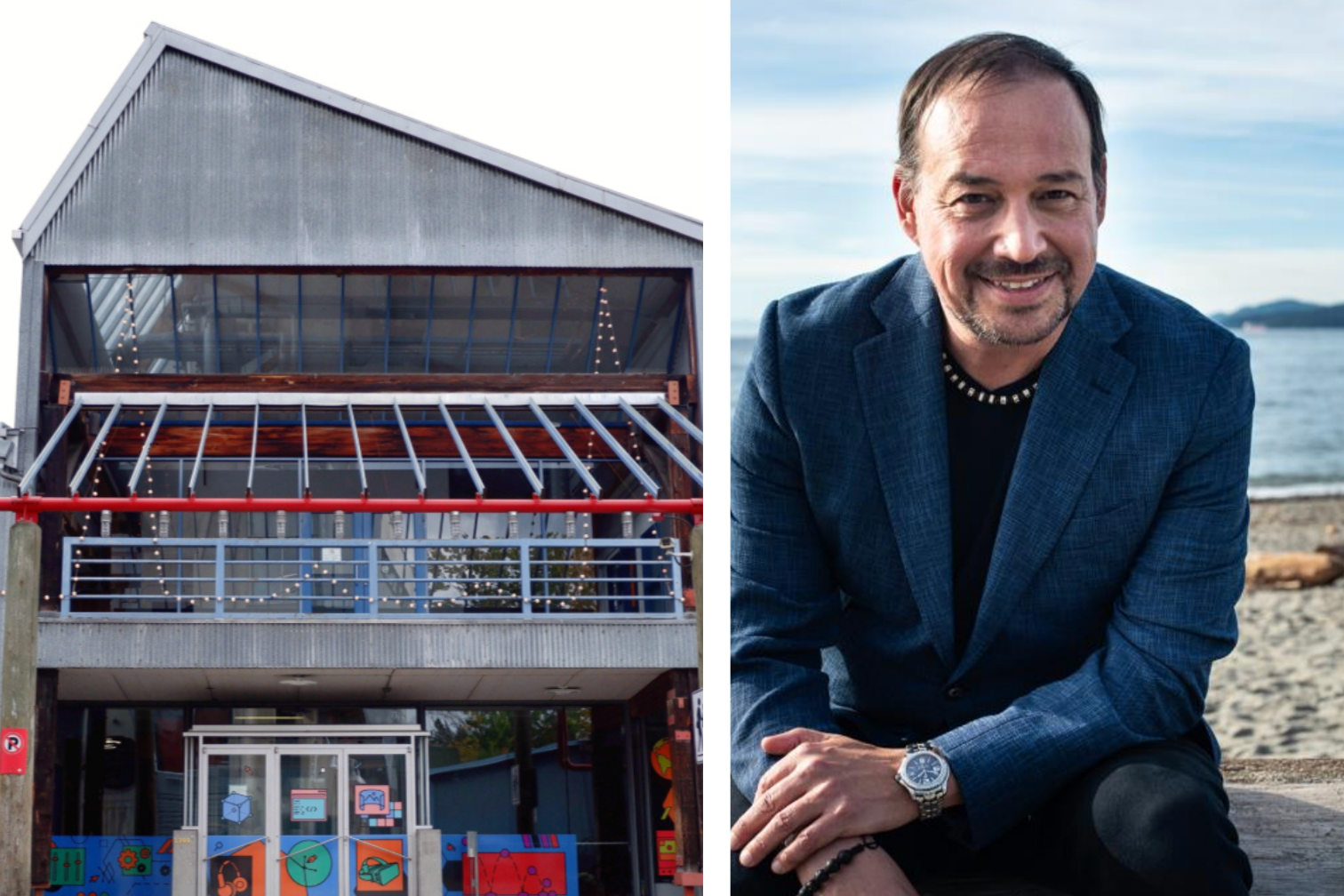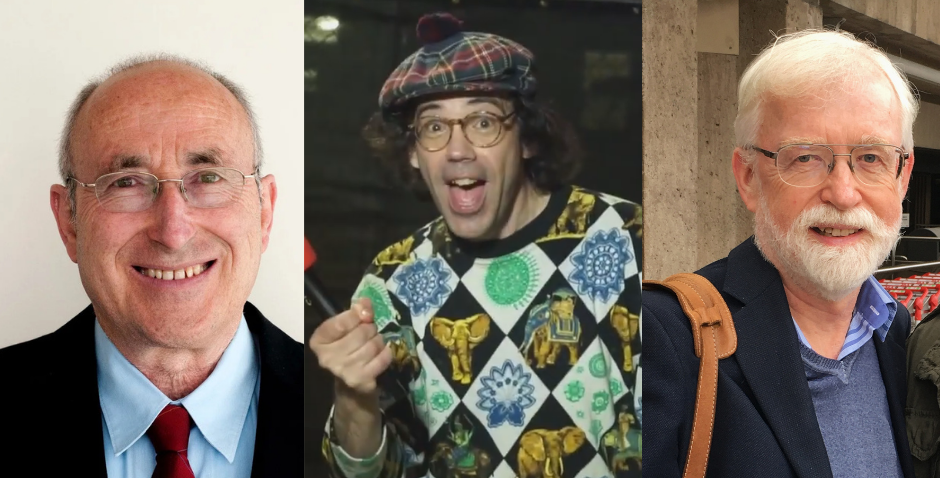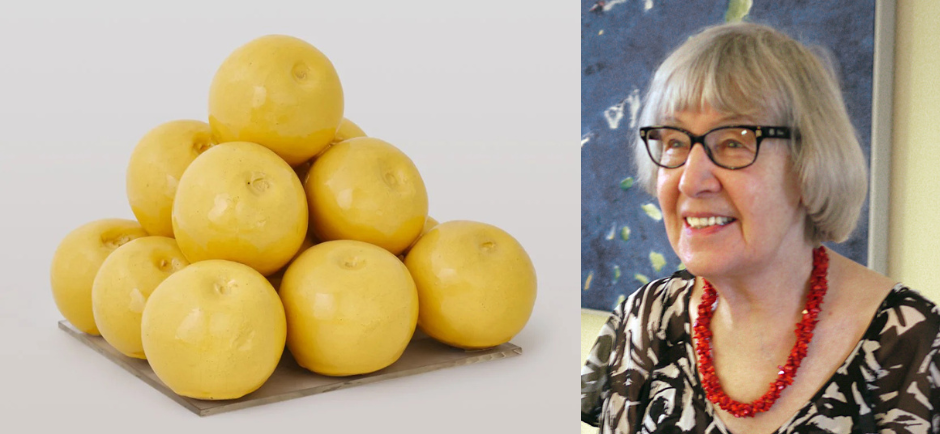Stir Q&A: Carmel Tanaka of Elimin8hate on anti-Asian racism, the media, and her great grandmother's protest letters
The community engagement director of the anti-racism campaign and centralized community racism-reporting centre by Vancouver Asian Film Festival Society and project 1907 speaks up on speaking out
Carmel Tanaka, a volunteer with Elimin8hate, is inspired by her great grandmother, who wrote protest letters in the 1940s.
The March 16 Atlanta murders of eight people, including six Asian women, drew immense attention to the rise of anti-Asian racism not just in the U.S. but in Canada as well. The attack was horrific, but the violence and hatred behind it are nothing new.
The ascent of overt discrimination against Asian people has been particularly sharp since the onset of COVID-19. According to Fight COVID Racism and Elimin8hate, women have been disproportionately affected.
Last spring, Vancouver Asian Film Festival Society (VAFF) formed Elimin8Hate—a grassroots, volunteer-run anti-racism campaign and centralized community racism-reporting centre—in partnership with project 1907, a volunteer group made up of Asian womxn to elevate underrepresented Asian voices.
Stir connected with Carmel Tanaka, community engagement director of Elimin8hate, to discuss the rise in anti-Asian racism and her take on the media’s role in it.
The statistics related to anti-Asian racism are extremely troubling. In looking at the rise in overt anti-Asian racism, what role does the media play in fuelling this discrimination in general in your view?
As much as the media fuels anti-Asian racism through the negative reinforcement of connecting the pandemic virus to Chinese people and Chinatowns and has a long history of fetishizing and hypersexualizing Asian women, the media also perpetuates further harm by not reporting on the rise in anti-Asian racism, playing into the model minority myth.
For example, where was the outpouring of media interest when Elimin8hate published data and these findings back in September 2020? It clearly showed a spike in anti-Asian hate crimes and incidents, including assault and verbal harassment, primarily against Asian women. Sadly, this number has increased and collectively, we now sit at over 1,000 anti-Asian incidents within Canada, which is reporting more incidents per capita than the USA. These numbers have not plateaued; instead, the assaults have escalated in severity. I feel like we have been screaming into a void.
And for the past week, we have been inundated with interview requests to cover stories on traumatized victims of anti-Asian hate crime. Stop feeding on trauma of equity-seeking communities, and stop feeding our trauma to the public. Trauma porn is a real thing: “Trauma porn refers to the perverse fascination with other people’s misfortune; a phenomenon which has become increasingly pervasive in a digital era where pain is commodified, and upsetting portrayals of it stripped of their emotional impact as they sink into the depths of content overload,” according to Incite, the University of Surrey Politics Magazine. Trauma porn is profoundly dehumanizing. And it makes those witnessing racial violence feel powerless and desensitized to the very things we need their help to address.
Our lived experiences don’t just end with one hate crime. Trauma is intergenerational. Follow up with us and write stories on how our communities are coping and our resilience, and how others can help prevent racialized violence… And learn how to pronounce and spell our names correctly, so we and the audience get the message that we are seen and visible to the world, as we should be.
Looking specifically at the fetishizing and hypersexualization of Asian women, what are some ways the media does this, and what are the ramifications?
Fetishizing and hypersexualizing Asian women is degrading and dehumanizing. It promotes the stereotype that Asian women are here to serve the white male’s fantasy of being the white saviour. Media is ripe with examples of the white males wanting to be with the subservient Asian woman. This erasure of our individuality allows anti-Asian racism to fester and grow.
The ramification of fetishizing and hypersexualizing Asian women on screen and in media is the normalization of exoticizing Asian women in everyday life.
What do you see when it comes to the role the media plays in the negative reinforcement of connecting the pandemic to Chinese people and Chinatowns?
The Asian American Journalists Association calls on news organizations to exercise more care in coverage of the coronavirus outbreak. Recklessly linking the virus to Chinese people and our Chinatowns through images of people wearing face masks without providing proper context, using generic images of Chinatown, and referring to the “Wuhan virus” or “Chinese virus” only adds fuel to racism and xenophobia.
It’s not just media doing this; we see well-meaning anti-racism campaigns doing the same thing, which is re-victimizing the very community they are trying to protect.
Statistics are one thing; the effects of hate and racism on individuals is altogether different. People's mental health is at stake. While everyone is unique, how are people in the Asian community being affected emotionally and mentally by anti-Asian sentiment and the media’s coverage of it?
We have a lot of feelings. Frustration, anger, sadness, exhaustion are all words that come to mind. It is brutal that there is a sudden and overwhelming interest in Elimin8hate’s work by the media and that it took the murder of Asian women for our voices to be heard, despite the fact that we have been saying that there is a rise in anti-Asian racism since last year.
Elimin8hate is rolling out its “Reclaim Your Name Video Project” in the coming months and will be hosting sharing circles to provide safe space for attendees to share their lived experiences through the sharing of the origins of their westernized names. Unpacking what it meant or may mean to them to embrace their name and uncovering possible internalized racism.
Many of us belong to more than one community and can see where there have been delays in solidarity responses to the increase in anti-Asian racism. Racism towards the Asian community has not been considered urgent, thanks to the model minority myth that everything is okay with us and there is nothing to complain about. And when we do get support from other communities, there is always that voice inside that asks whether or not it was performative allyship.
What drives you to volunteer with Elimin8Hate?
I am a queer Jewish Asian woman of colour, a social justice advocate. I belong to multiple marginalized community groups. The Jewish community has been self-reporting anti-Semitic hate crimes for as long as I can remember. When I heard that project1907 was developing a community mechanism to report anti-Asian hate crimes and when I was approached by Elimin8hate to help with their community engagement, my answer was “yes” immediately.
As a member of the Japanese Canadian community, I was told my whole life that the Japanese Canadians didn’t fight back during the internment. That, as Asians, the cultural way was to stay quiet and not rock the boat. Only recently with “Writing Wrongs: Japanese Canadian protest letters of the 1940s” have we found out that not only did they not stay quiet, but they were silenced. I am volunteering with Elimin8hate because just like my great grandmother Shimo Kameda, who is a protest letter writer, I will not be quiet, and this time, I will not be silenced. [See Kameda’s Protest Letter #1 and Protest Letter #2.]
What isn’t being talked about?
Why did it take so long for people to believe us? What is fundamentally wrong with our education systems, and other systems like the media, that it takes the murder of six Asian women to care? People need to be asking themselves: Why wasn’t I supporting the Asian community previously? Why am I suddenly supporting them now?
Our community is grieving. We are in mourning, and we are being inundated with interview requests. Trauma is real. Let the community tell our story the way we want to tell it and give us space to speak and not shape it through a colonized white lens. If we don’t want to disclose our identities due to personal and safety reasons, respect it.
What are ways people can support Elimin8Hate's work?
Speak up, speak out and use your platform. Stop debating on whether the women in Atlanta were sex workers: it doesn’t matter. The time is to no longer be silent. Eileen Park shared what happened to her over the years as an Asian woman in the media and the sickening reaction to her interracial marriage [to former Vancouver mayor Gregor Robertson].
Donate to groups like Elimin8hate in Canada so we can continue to do the work that needs to be done. Have uncomfortable conversations in your places of work and homes and seriously check your biases on why anti-Asian racism is only on your radar now, if at all.
Establish organizational policies to monitor the comment section of articles, so that targeted communities don’t get re-triggered by reading them. Yes to freedom of speech, but at what expense?
On a governmental level, the Canadian government can start by recognizing and naming Anti-Asian racism in its Federal Anti Racism Strategy (2019-2022). Be less performative and offer more grassroots funding, as there is a big need to fund the work groups like Elimin8hate and project1907 are doing through volunteers. We are modern day cultural railway workers, taking care of our community ourselves.
Invite all the grassroots groups that are actively working to combat racism to the table.
Take action towards criminalizing hate speech and racialized violence.
Make sure that government make-up is proportional to the population’s demographics, so that there are more people with similar lived experiences who can develop policies that help equity-seeking communities like ours thrive. Representation matters.
Push for education curriculum to include history of anti-Asian racism, alongside anti-Indigenous and anti-Black racism.
What we don’t need is calls for more police. More police is not the answer to tackling racism. That is not their role and we have seen violence against Indigenous people, Black people, and Asians at the hands of police.
September 2020.


